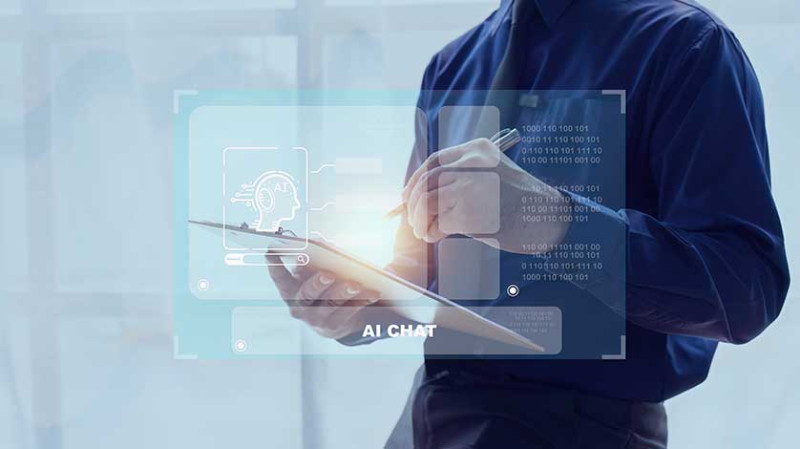
The accounting landscape in the UK is rapidly evolving, thanks to the revolutionary impact of artificial intelligence (AI) and automation. These cutting-edge technologies are transforming traditional accounting practices, streamlining processes, and empowering accountants to become more strategic advisors to businesses. In this article, we will delve into the role of AI and automation in modern accounting, exploring their advantages, implementation strategies, and implications for the accounting industry in the UK.
The Role of AI and Automation in Modern Accounting
In the ever-evolving field of accounting, the integration of artificial intelligence (AI) and automation has become a game-changer, reshaping traditional accounting practices and revolutionizing the industry in the UK. AI-powered algorithms have the capacity to process vast amounts of financial data with unparalleled speed and accuracy, enabling accountants to make well-informed decisions with confidence. Gone are the days of laborious data entry and manual bookkeeping, as AI-driven automation takes over these repetitive tasks, liberating accountants to focus on strategic analysis and value-added services. The role of AI in accounting extends beyond simple data processing; it offers predictive capabilities that can anticipate future financial trends and patterns, empowering businesses with real-time insights for better financial planning and decision-making. As accounting embraces AI and automation, it paves the way for a new era of efficiency, accuracy, and strategic thinking, elevating the profession and propelling businesses to new heights of success in the UK.
Advantages of AI in Accounting Processes
The adoption of artificial intelligence (AI) in accounting processes has unleashed a plethora of advantages for businesses in the UK. By automating data entry tasks, AI-powered tools ensure a higher level of accuracy, minimizing the risk of human errors. This heightened precision translates to more reliable financial records and reports, instilling greater confidence in decision-making. Additionally, automating repetitive tasks, such as bookkeeping, invoicing, and bank reconciliation, saves valuable time and resources, allowing accounting professionals to focus on strategic analysis and more value-added activities. AI's predictive analytics capabilities empower businesses with real-time financial insights, enabling proactive decision-making and a competitive edge in the dynamic market landscape. With AI's ability to analyze vast datasets quickly, businesses can identify trends, potential cost savings, and growth opportunities, driving overall financial performance and success.
Implementing Automation for Enhanced Efficiency
Embracing automation through cloud-based accounting software has become crucial for enhancing efficiency in the accounting industry in the UK. These cutting-edge platforms facilitate seamless collaboration between accountants and clients, allowing real-time access to financial data from anywhere. AI-driven reports and dashboards provide a comprehensive overview of financial health, enabling quicker and data-driven decision-making. Moreover, automation helps accountants stay ahead of crucial deadlines and compliance requirements, reducing the risk of penalties or non-compliance. By identifying opportunities for cost savings and increased productivity, automation becomes a strategic tool for businesses to optimise financial resources and channel efforts towards growth-oriented endeavours.
Addressing Challenges and Concerns in AI Adoption
As AI adoption gains momentum in accounting, addressing challenges and concerns is vital for a successful transition. One major concern is the fear of job displacement among accounting professionals. However, embracing AI provides opportunities for accountants to evolve their roles from routine tasks to strategic advisors, focusing on complex analysis and client relationship management. Providing comprehensive AI training and skill development to accountants equips them with the expertise to harness AI's potential fully. Ensuring compliance and regulatory adherence in AI-driven accounting practices is critical, necessitating a thorough understanding of AI algorithms and transparency in decision-making processes. As the industry adapts to AI integration, proactive measures to overcome scepticism and promote education are paramount to capitalise on AI's transformative benefits.
The Impact of AI on the Accounting Industry in the UK
AI's influence on the accounting industry in the UK extends beyond operational efficiency. As AI-driven tools streamline processes, accountants are freed from manual tasks and can shift their focus towards strategic financial analysis and advisory roles. This transition enhances the client-accountant relationship, as businesses value the insights and expertise AI-powered analysis offers. Moreover, AI's predictive capabilities help businesses proactively respond to market changes, financial risks, and opportunities, leading to better-informed decision-making and long-term financial stability. As the accounting landscape evolves, embracing AI will enable the industry to adapt to changing client demands, regulatory requirements, and technological advancements, fostering a more agile and future-ready profession.





